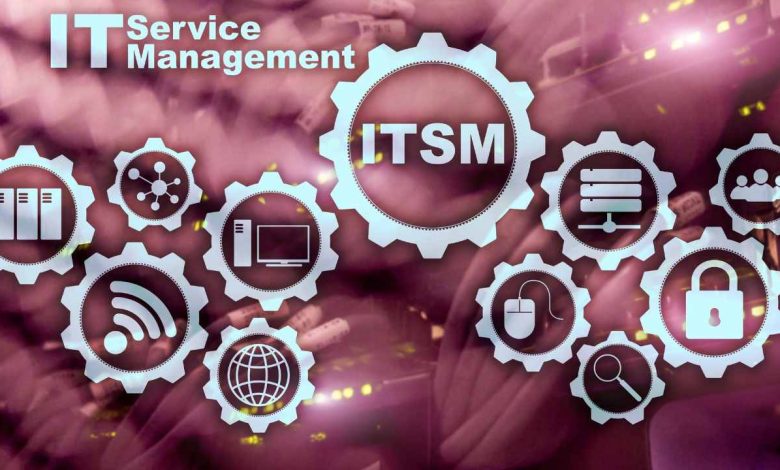10 Essential Tips to Successfully Manage Your IT Service
10 Essential Tips to Successfully Manage Your IT Service

Managing IT service is crucial for businesses to maintain operational efficiency and ensure seamless technology integration. In today’s digital age, where technology is at the forefront of every industry, effective IT service management is imperative for success. This comprehensive guide outlines ten essential tips to help you navigate the complexities of managing IT service and maximize your organizational potential.
Manage IT Service Efficiently
In today’s fast-paced business environment, managing IT service efficiently is essential for staying competitive and meeting customer demands. Here are some key strategies to streamline your IT operations and enhance productivity:
Implement Robust Monitoring Systems
To effectively manage IT service, it’s essential to have robust monitoring systems in place. These systems enable real-time tracking of network performance, identify potential issues proactively, and ensure timely resolution of IT-related issues.
Leverage Automation Tools
Automation tools can significantly improve IT service management by automating repetitive tasks, reducing manual errors, and enhancing overall efficiency. By automating routine processes such as software updates and data backups, organizations can free up valuable time and resources to focus on strategic initiatives.
Ensure Data Security and Compliance
Data security is paramount in IT service management. Implementing robust security measures, such as encryption, multi-factor authentication, and regular security audits, can help safeguard sensitive information and ensure compliance with regulatory requirements.
Embrace Cloud Technology
Cloud technology offers scalability, flexibility, and cost-efficiency, making it an ideal solution for managing IT service. By migrating to the cloud, organizations can streamline operations, enhance collaboration, and improve accessibility to critical business applications and data.
Provide Continuous Training and Development
Investing in employee training and development is essential for maintaining a skilled IT workforce and ensuring proficiency in managing IT service. By providing continuous learning opportunities, organizations can empower their employees to stay abreast of emerging technologies and best practices in IT service management.
Implement Disaster Recovery Plans
Disruptions such as natural disasters, cyber-attacks, or hardware failures can have devastating consequences on business operations. Implementing robust disaster recovery plans and backup strategies is essential for mitigating risks and ensuring business continuity in the event of unforeseen incidents.
Foster a Culture of Collaboration
Effective IT service management requires collaboration across departments and teams. By fostering a culture of collaboration and communication, organizations can break down silos, streamline processes, and enhance overall efficiency in managing IT service.
Regularly Assess and Update IT Infrastructure
Technology is constantly evolving, and it’s crucial to regularly assess and update IT infrastructure to meet changing business needs. Conducting regular infrastructure assessments, upgrading outdated systems, and investing in emerging technologies can help organizations stay ahead of the curve in managing IT service.
Monitor and Optimize IT Costs
Managing IT service involves balancing performance objectives with budget constraints. Regularly monitoring and optimizing IT costs by identifying cost-saving opportunities, renegotiating vendor contracts, and eliminating unnecessary expenses can help organizations maximize their IT investments and achieve cost-efficiency.
Provide Exceptional Customer Support
Effective IT service management goes beyond technical expertise; it also involves delivering exceptional customer support. Providing timely assistance, resolving issues promptly, and soliciting feedback from end-users are essential aspects of delivering superior IT service.
FAQs (Frequently Asked Questions):
How can I improve IT service efficiency? Improving IT service efficiency involves implementing robust monitoring systems, leveraging automation tools, embracing cloud technology, and fostering a culture of collaboration.
What are the key components of effective IT service management? Key components of effective IT service management include data security, disaster recovery planning, continuous training and development, and cost optimization.
How can I ensure data security in IT service management? Ensuring data security involves implementing encryption, multi-factor authentication, regular security audits, and compliance with regulatory requirements.
Why is collaboration important in IT service management? Collaboration is important in IT service management as it helps break down silos, streamline processes, and enhance overall efficiency by fostering communication and teamwork.
What role does cloud technology play in managing IT service? Cloud technology offers scalability, flexibility, and cost-efficiency, making it an ideal solution for managing IT service by streamlining operations and improving accessibility to critical business applications and data.
How can I optimize IT costs without compromising performance? Optimizing IT costs involves regularly monitoring expenses, identifying cost-saving opportunities, renegotiating vendor contracts, and eliminating unnecessary expenses to achieve cost-efficiency.
Conclusion:
Successfully managing IT service is essential for businesses to thrive in today’s digital landscape. By implementing the ten essential tips outlined in this guide, organizations can streamline operations, enhance productivity, and achieve their strategic objectives effectively. With a focus on robust monitoring, automation, security, and collaboration, businesses can optimize their IT infrastructure and drive sustainable growth in the ever-evolving technology landscape.









